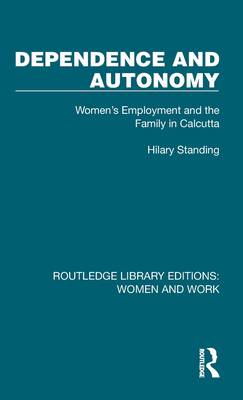
- Retrait gratuit dans votre magasin Club
- 7.000.000 titres dans notre catalogue
- Payer en toute sécurité
- Toujours un magasin près de chez vous
- Retrait gratuit dans votre magasin Club
- 7.000.0000 titres dans notre catalogue
- Payer en toute sécurité
- Toujours un magasin près de chez vous
Description
What are the effects of employment on women's well-being and social position in a Third World city?
Until recently before publication, Calcutta (now Kolkata) had been notable for having one of the lowest rates of female employment in India. This had been largely determined by strong cultural beliefs that a woman's place is in the home. However, in recent years, the growth of 'female' jobs in the small-scale industry and service sectors, combined with an increase in male unemployment had resulted in a sudden increase in the numbers of women entering the labour force. Originally published in 1991 and based on Hilary Standing's extensive fieldwork within Bengali households, Dependence and Autonomy considers the effects of women's employment on the labour market, the household, and the women themselves. Particular attention is paid to the role of the life cycle and of class position in determining the impact of employment, and the work is set within a historical perspective on gender and employment in Bengali society.
This book is a re-issue originally published in 1991. The language used is a reflection of its era and no offence is meant by the Publishers to any reader by this re-publication.
Spécifications
Parties prenantes
- Auteur(s) :
- Editeur:
Contenu
- Nombre de pages :
- 196
- Langue:
- Anglais
- Collection :
Caractéristiques
- EAN:
- 9781032285924
- Date de parution :
- 24-08-22
- Format:
- Livre relié
- Format numérique:
- Genaaid
- Dimensions :
- 140 mm x 216 mm
- Poids :
- 394 g







